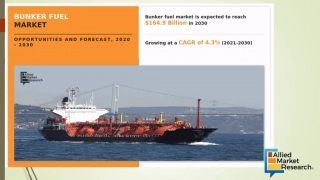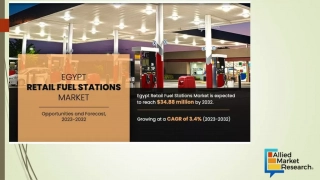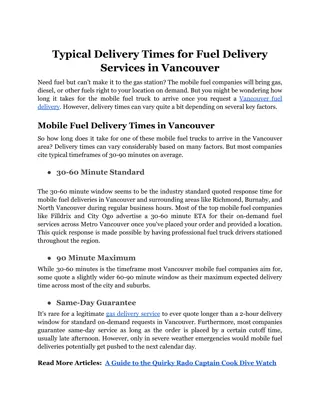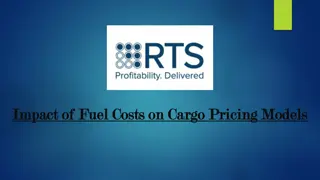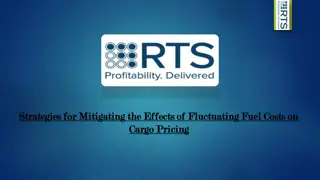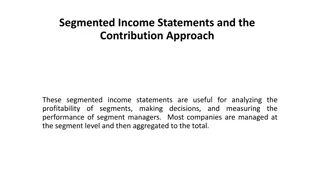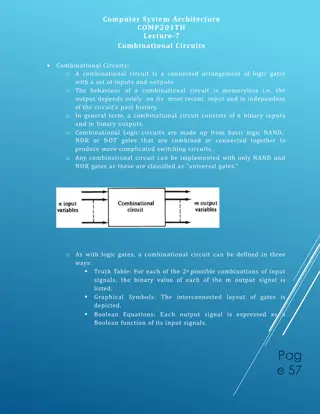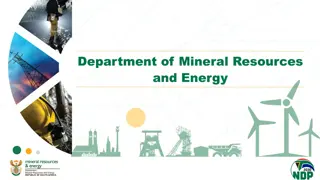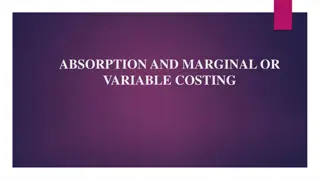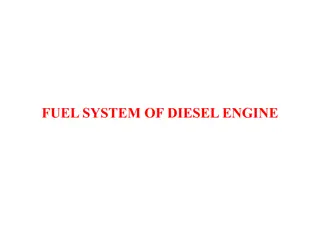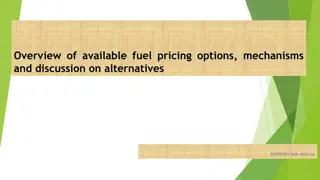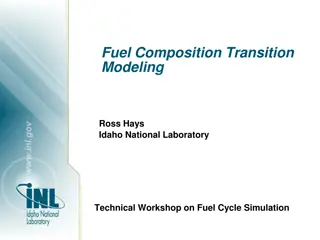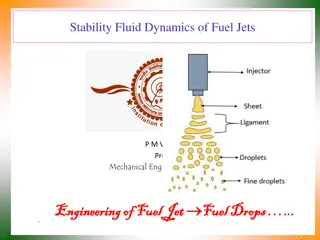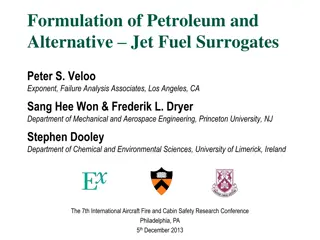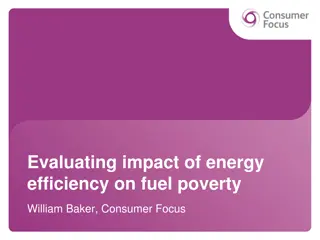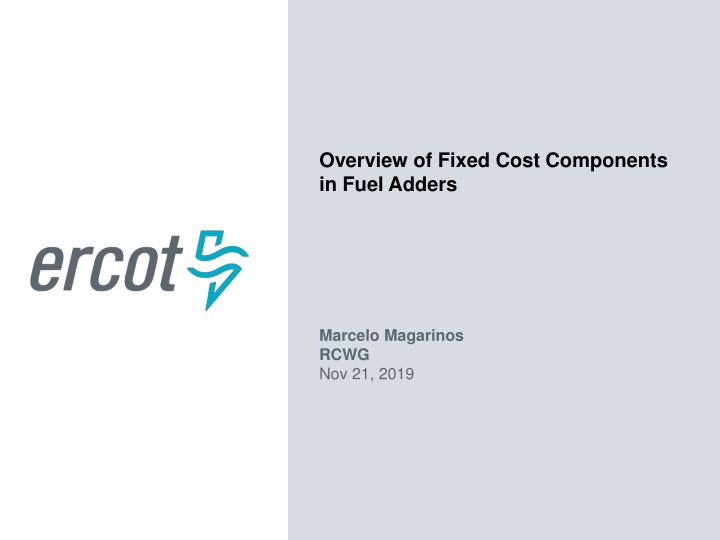
Fixed Cost Components in Fuel Adders Overview
Learn about the purpose of fuel adders in determining fuel prices used by ERCOT, including components such as commodity, storing, and transporting natural gas. Understand the verifiable cost manual language on fuel adders, rules for submitting fuel costs, and protocol language on verifiable costs. Explore the fixed fees included in fuel adders, such as minimum requirement fee, demand fee, dispatch service fee, and storage fee.
Download Presentation

Please find below an Image/Link to download the presentation.
The content on the website is provided AS IS for your information and personal use only. It may not be sold, licensed, or shared on other websites without obtaining consent from the author. If you encounter any issues during the download, it is possible that the publisher has removed the file from their server.
You are allowed to download the files provided on this website for personal or commercial use, subject to the condition that they are used lawfully. All files are the property of their respective owners.
The content on the website is provided AS IS for your information and personal use only. It may not be sold, licensed, or shared on other websites without obtaining consent from the author.
E N D
Presentation Transcript
Overview of Fixed Cost Components in Fuel Adders Marcelo Magarinos RCWG Nov 21, 2019
Fuel Adders (FA) Purpose Ensure the fuel price (FIP + FA) used by ERCOT in the various calculations1 includes the average cost of: Commodity, Storing, and Transporting natural gas 2 PUBLIC
Verifiable Cost Manual Language on Fuel Adders 3.4 Additional Rules for Submitting Fuel Costs Paragraph (2) Any Filing Entity that submits an actual fuel adder must provide documentation that establishes the historical costs for fuel, including transportation, spot fuel, and any additional verifiable cost associated with fuel contracts that can be easily differentiated from the standard commodity cost of fuel and clearly attributable to the Resource for the period. The fuel adder for a rolling 12-month period is the difference between the Filing Entity s average fuel price paid (including all fees) during the period and the fuel price utilized by ERCOT for the corresponding Resource. The Filing Entity shall provide rolling 12-month supporting data to verify total fuel price for all purchased volumes to support the actual Resource fuel consumption. Data to support these costs should include, but are not limited to, accounting ledger entries, invoices, and copies of fuel contracts. In addition, the actual costs used to calculate the fuel adder may include, but are not limited to, the following categories: transportation, deliveries, storage, injection, withdrawal, imbalance, and minimum requirements fees. Other costs not described herein may be included and approved by ERCOT. 3 PUBLIC
Protocol Language on Verifiable Costs 5.6.1 Verifiable Costs (5) These unit-specific verifiable costs may not include: (a) Fixed costs, which are any cost that is incurred regardless of whether the unit is deployed or not; and (b) Costs for which the QSE or Resource Entity cannot provide sufficient documentation for ERCOT to verify the costs. 4 PUBLIC
Fixed Fees Included in Fuel Adders a) Minimum Requirement Fee Fixed monthly amount ($) Not impacted by quantity of gas transported b) Demand Fee Based on a contracted rate ($/MMBtu) Applied to a pre-defined fixed volume (MMBtus) Not impacted by quantity of gas transported c) Dispatch Service Fee or Real-Time Fee Fixed monthly amount ($) d) Storage Fee Fixed monthly amount based on a given storage capacity Not impacted by how much MMBtu volume is used 5 PUBLIC
Issues with Current FAs a) Should Fuel Adders include Fixed costs? If yes, how should language in VC Manual and Protocol be aligned? b) Given that the FAs are calculated by dividing a cost (e.g., fixed cost) over a volume, if the volume is small, the FA can result in a very high number. What should be the proper approach in this case? 6 PUBLIC
Questions? 7 PUBLIC



